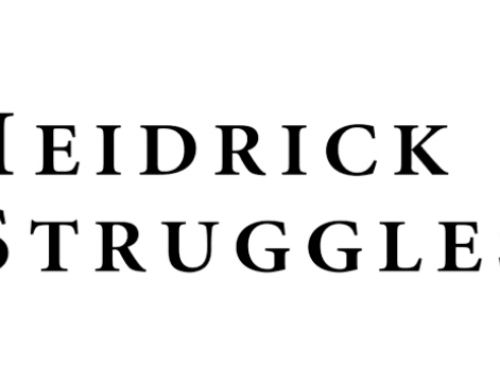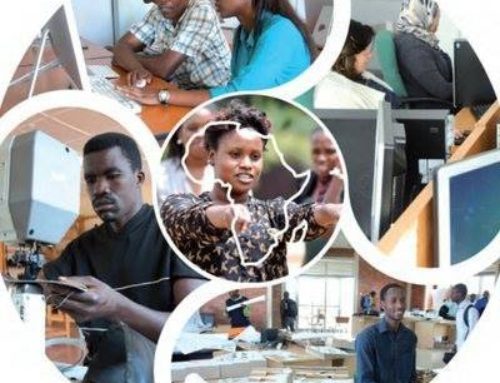Guest blog post by Catherine Moger Rickwood, MESH Experience
On a hot summers day in the Arton Senna Stadium, a young Brazilian boy from the favelas chatters away as he waits for his lunch. It’s the day of his Capoeira ‘Baptism’ and today he gets honored for his achievements, along with the other children who have been practicing hard. Making his lunch are some unexpected visitors from a market research consultancy, usually found knee deep in data, spreadsheets or presentations. They have found themselves here as part of a project that is evolving the way research is conducted, specifically in areas such as this, where large portions of the population don’t have computers in their homes. This project aims to provide a more sustainable, responsible model to connect brands to consumers in order to let their voices be heard.
The Emerging Middle Class in Brazil have been referred to as the ‘forgotten’ by marketers as they are so hard to reach via traditional means. They were an enigma, but represented a huge group that couldn’t be ignored, in a highly connected country with the second highest volume of Facebook users and more than one mobile phone per person (at the time of the project). This was a group that our client, PepsiCo, was eager to understand. So we collaborated on a unique research project which set out with big ambitions, and has since gained industry recognition.
We’re all bombarded with data, but as market researchers working with data points day in, day out, the key to developing insight is in constantly reminding ourselves that those stats represent living, breathing people and their interactions in the real-world. Employing our experience-led approach for this project, we didn’t just want data points, we wanted to capture and understand the experiences that these communities were having – in this case, with soft drink brands – whether they were TV ads depicting ideological portrayals of Brazilian life, discount posters at the local stores or an evening meal where the family laugh and joke over a shared bottle of soda. We wanted to know which ones were positive, which ones were negative and why.
This experience capture methodology is one that Fiona Blades, founder and CEO of certified women-owned MESH Experience, pioneered. What was going to be tricky about this specific project was that we usually recruited our audience and collected this information via computers, and the Lower Income Classes (LIC) in Brazil typically didn’t have computers in their homes, and literacy levels were low. Beyond this, it can be dangerous to walk in the favelas, further deterring brands, and face-to-face researchers – who are used to going everywhere – from connecting with this group. [Through the Ginny Valentine Awards, we have recognized brave female researchers who have gone door to door in highly political climates – even after receiving personal threats – to gather valuable opinions that otherwise wouldn’t have been heard].
In our approach, we wanted to evolve the way research was being conducted and move away from an older, hierarchical model of ‘us’ (client) and ‘them’ (respondent) with researchers in the middle, to a mutually beneficial research ecosystem where every group was an equal participant. What we can up with was a Sustainable Research Community model. We set up several communities, in each one a female community leader was the key point of contact. We wanted to reward the individuals contributing to the project but also the community centers. Whats more, we wanted to contribute to the communities with in a sustainable and valuable way i.e. not necessarily with a one-time cash contribution which might not have a lasting impact. We worked with the female community leaders to choose a reward for their community that the project would organize and fund, such as recycling stations, nail technician training or sports equipment.
Crucially, this approach helped build trust which was key here as we wanted a long term relationship rather than a quick turnaround in-and-out approach. We heard some amusing yet disappointing stories about brands that had tried to ‘make a difference’ in the community but ultimately left a bad taste in their mouths; we heard stories describing how large corporations had swooped in, painted a graffiti-covered wall with their logo, taken some pictures and left patting themselves on the back, confident that the community would all be buying their product from now on in return for their ‘contribution’. This was illustrative of the strong disconnect that is often felt between client teams huddled in an air-conditioned office making decisions about how they can meet the needs of their consumers. To overcome this disconnect, we took members of the client team into the community and also took community leaders to a workshop in the client offices so they could add color first-hand to the insights we were sharing, which were sometimes met with surprise.
This was very effective and this is a principle that’s universal to all walks of life, whatever your audience is in the moment; For us as researchers, if participants are engaged and understand how they can make an impact, the data quality will be higher and at the other end of the chain, if our clients are engaged then the insight quality they take out will be deeper. The strong females leading the communities had integral roles with the projects and provided support, regular check ins, basic IT training, access to computers, and face to face meetings when needed to account for low levels of literacy.
In terms of the results, client stakeholders were astonished to discover that manufacturers’ soft drink advertising was not resonating. In fact retailer TV advertising was more engaging and persuasive! (We saw 78% positivity for TV retailer advertising vs just 69% for brand advertising, which did not replicate the pattern seen for high income groups). With new-found disposable income, the shopping experience was incredibly important to this group – and retailers had messages that were landing while brands were sometimes missing the point. As a result they were able to reallocate marketing investments and evolve messaging, checking in with community members to inform their evolving strategy.
So did all parties benefit from our newfound research ecosystem? Our client had some actionable recommendations to feed into their strategy, and a project that got the local team global recognition. The Community of participants in addition to having their voices heard received individual and community benefits. And as for us, on top of a satisfied client and happy participants ready for the next project to come their way, we received industry recognition with the New Consumer Insight Award at the MRS conference and are continuing to challenge the way research in conducted to provide sustainable solutions and deeper insights.
About Catherine Moger Rickwood:
Catherine heads up the North America team at MESH Experience. She has a passion for, and an academic background in, Psychology with a Master’s Degree in Economic and Consumer Psychology from the University of Exeter. Her work maximizing the impact of Experience Data for clients has landed MESH with a Star Award from Delta Air Lines and two International Business Awards. She has spoken at a range of industry conferences, guest lectured at NYU and Baruch college and is involved in organizing events such as the Ginny Valentine Badge of Courage Award and WiRe.


